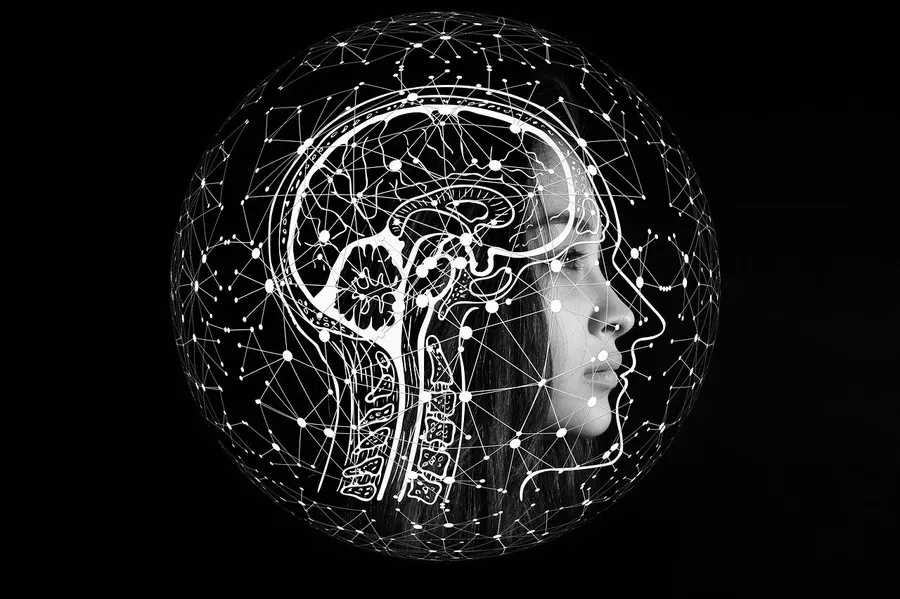How AI is Reshaping Industries and What It Means for the Future of Work
Artificial Intelligence (AI) is no longer a futuristic concept, it’s a present-day force that’s quickly transforming how industries operate. From automating routine tasks to improving the decision-making process with predictive analytics, AI is driving innovation across major sectors.
As these technologies continue to evolve, they’re not just changing how businesses function, they’re fundamentally redefining the skills, roles, and expectations of the modern workforce.
Therefore, in this article, we’ll explore how AI is reshaping industries and what these changes mean for the future of work, and what opportunities they bring.
Changes in transportation
AI is playing an important role in transforming the transportation industry, bringing significant innovations in both efficiency and sustainability. As global demand for faster, greener mobility grows, AI technologies are helping reshape how people and goods move from one place to the other. Statistics show that as of now, the AI transportation market size is around $4.5 billion and is expected to grow even further in the upcoming years. One of the most significant changes is the rise of autonomous and semi-autonomous vehicles. AI-powered systems allow cars, trucks, and even ships to navigate complex environments, avoid obstacles, and make real-time decisions without human intervention. This not only enhances safety, but reduces traffic congestion and unnecessary fuel consumption with the help of route optimization. Public transportation is becoming smarter as well. AI is used to analyze passenger data, predict demand patterns, and adjust schedules dynamically, ensuring better service with much fewer delays. Ultimately, this means that AI is making transportation systems much more intelligent, responsive, and environmentally friendly. As these technologies continue to evolve, they will play an important role in building a much cleaner and safer mobility solution for the future.
Redefining office workflows
AI is dramatically redefining office workflows by automating routine tasks, improving decision-making processes, and allowing team members to collaborate more efficiently. The traditional 9-to-5 office job is now becoming a more flexible, tech-augmented experience where productivity is driven by intelligent systems working alongside humans. One of the most significant changes is the automation of repetitive administrative tasks. AI tools like virtual assistants, smart scheduling apps, and document automation platforms now handle tasks such as calendar management, email sorting, data entry, and expense reporting. Workflow optimization is another area seeing major improvements. AI-powered analytics tools can track how teams use their time, suggesting more efficient processes, and identify workflow bottlenecks. This allows managers to allocate resources better and improve overall team performance.
Tax and accounting process
 AI is revolutionizing the tax and accounting industry by automating routine tasks, improving accuracy, and allowing faster, more informed financial decisions. Traditionally seen as time-consuming and detail-heavy fields, tax preparation and accounting are becoming increasingly efficient thanks to machine learning algorithms, natural language processing, and data analytics. One of the most impactful changes is the automation of repetitive processes such as data entry, invoice marching, and transaction categorization. AI-powered accounting software can now scan and interpret large volumes of financial data in seconds, reducing manual errors and freeing up professionals to focus on higher-value tasks like strategic planning and advisory services. In tax preparation, AI tools are helping individuals and businesses navigate complex tax codes with ease. They can identify deductions, flag anomalies, and ensure compliance with local and international regulations. In the case of large enterprises, AI systems can analyze financial records across global operations, assess tax liabilities in real-time, and generate reports that would traditionally take days or weeks to complete.
AI is revolutionizing the tax and accounting industry by automating routine tasks, improving accuracy, and allowing faster, more informed financial decisions. Traditionally seen as time-consuming and detail-heavy fields, tax preparation and accounting are becoming increasingly efficient thanks to machine learning algorithms, natural language processing, and data analytics. One of the most impactful changes is the automation of repetitive processes such as data entry, invoice marching, and transaction categorization. AI-powered accounting software can now scan and interpret large volumes of financial data in seconds, reducing manual errors and freeing up professionals to focus on higher-value tasks like strategic planning and advisory services. In tax preparation, AI tools are helping individuals and businesses navigate complex tax codes with ease. They can identify deductions, flag anomalies, and ensure compliance with local and international regulations. In the case of large enterprises, AI systems can analyze financial records across global operations, assess tax liabilities in real-time, and generate reports that would traditionally take days or weeks to complete.
AI-powered communication and collaboration
Communication is more important than ever, especially when you are working at an office. AI plays an important role in making collaboration more dynamic and inclusive in the following ways:
- Real-time transaction and transcription: AI removes language barriers in global teams by translating meetings live. It even works in real-life interactions.
- Virtual assistants: Tools like Google Assistant and Cortana schedule meetings, set reminders, and answer questions.
- Meeting summarizations: AI generates concise, accurate recaps of meetings, saving time and boosting accountability.
AI-powered communication and collaboration tools are transforming the workplace into a more dynamic, connected, and responsive environment. By reducing friction and enhancing clarity, these tools empower teams to focus on what matters most: Problem-solving, delivering results, and implementing innovation.
ChatGPT video generators
Can ChaGPT make videos? The real answer is that it directly can’t on its own, but ChatGPT video generators are possible by combining ChatGPT with AI video-generation platforms that integrate similar language models or work alongside ChatGPT for script-based content creation. Otherwise, AI video generators that work with ChatGPT are revolutionizing the modern workplace by:
- Automating content creation: ChatGPT creates high-quality scripts in a matter of seconds, while tools like Synthesia or HeyGen turn those into full videos. This significantly reduces the time and cost of corporate training videos, marketing explainers, internal communications, and client onboarding materials.
- Document automation: Tools like Microsoft 365 Copilot or Google Workspace’s AI features help draft, summarize, and edit emails, reports, and presentations in seconds.
- Enabling scalable, personalized communication: AI avatars can be programmed to deliver content in multiple languages and tones. This allows for global training rollouts, localized marketing campaigns, and custom client messaging at scale.
ChatGPT-style video generators are redefining how work gets done, boosting productivity, reducing costs, and allowing human-like communication at scale.
Emerging careers in the AI economy
 As AI continues to reshape industries, it’s also giving rise to a new wave of careers that didn’t exist just a few years ago. These emerging roles reflect the growing demand for professionals who can develop, manage, and ethically guide AI technologies across different sectors. From tech specialists to creative and strategic thinkers, the AI economy is creating opportunities across many wide ranges of skill sets.
As AI continues to reshape industries, it’s also giving rise to a new wave of careers that didn’t exist just a few years ago. These emerging roles reflect the growing demand for professionals who can develop, manage, and ethically guide AI technologies across different sectors. From tech specialists to creative and strategic thinkers, the AI economy is creating opportunities across many wide ranges of skill sets.
- AI Ethicist: As AI systems become more embedded in daily life, companies need experts who can navigate complex ethical questions around bias, fairness, transparency, and accountability.
- Prompt engineer: One of the most spoken-about new roles, prompt engineers specialize in crafting effective inputs for large language models like ChatGPT. They understand how to “Speak AI” to get precise, creative, or optimized outputs, valuable for industries ranging from marketing to software development.
- AI product manager: These professionals bridge the gap between tech AI teams and business stakeholders. They guide the development of AI-powered products, ensuring alignment with user needs, market demand, and organizational goals.
- Conversational UX Designer: As AI powers more chatbots and voice assistants, designers who specialize in natural language flows, tone, and user experience are in high demand.
Statistics show that 170 million new jobs will be created by 2030 and AI will play an important role in influencing new job creation that will have a positive impact on the job market.
Large transformation in industries
 The rise of AI has marked one of the largest transformations in industrial history. From medical labs to manufacturing floors, AI technologies are reshaping traditional workflows, redefining efficiency, and unlocking new possibilities for innovation. In manufacturing, AI-driven robotics and predictive maintenance systems are increasing productivity while reducing downtime. Machines can now self-diagnose issues and anticipate failures before they occur, allowing companies to optimize production schedules and reduce costly interruptions. Retail and ecommerce are also experiencing a revolution. AI tools are allowing dynamic pricing, inventory optimization, and customer behavior analysis, offering tailored experiences at scale. Even creative industries, such as marketing and content production, are being transformed by AI-generated media and automated design tools. These changes are making companies rethink how they operate and how they train their workforce in an AI-driven world. The organizations that adapt quickly and strategically are poised to lead their sectors, while those that resist change may struggle to keep up with the latest changes.
The rise of AI has marked one of the largest transformations in industrial history. From medical labs to manufacturing floors, AI technologies are reshaping traditional workflows, redefining efficiency, and unlocking new possibilities for innovation. In manufacturing, AI-driven robotics and predictive maintenance systems are increasing productivity while reducing downtime. Machines can now self-diagnose issues and anticipate failures before they occur, allowing companies to optimize production schedules and reduce costly interruptions. Retail and ecommerce are also experiencing a revolution. AI tools are allowing dynamic pricing, inventory optimization, and customer behavior analysis, offering tailored experiences at scale. Even creative industries, such as marketing and content production, are being transformed by AI-generated media and automated design tools. These changes are making companies rethink how they operate and how they train their workforce in an AI-driven world. The organizations that adapt quickly and strategically are poised to lead their sectors, while those that resist change may struggle to keep up with the latest changes.
The future of work will belong to those who adapt
Artificial intelligence is no longer a distant frontier, it’s a driving force behind the transformation of industries and the evolution of the workplace. From improving efficiency in transportation and healthcare to reshaping finance, education, and creative sectors, AI is redefining what businesses can achieve and how people engage with their work. At the same time, this shift brings new responsibilities, to ensure ethical development, reduce bias, support displaced workers, and build transparent, human-centered systems. As we stand at this turning point, the future of work will belong to those who adapt, continuously learn, and focus on collaborating with intelligent systems.










